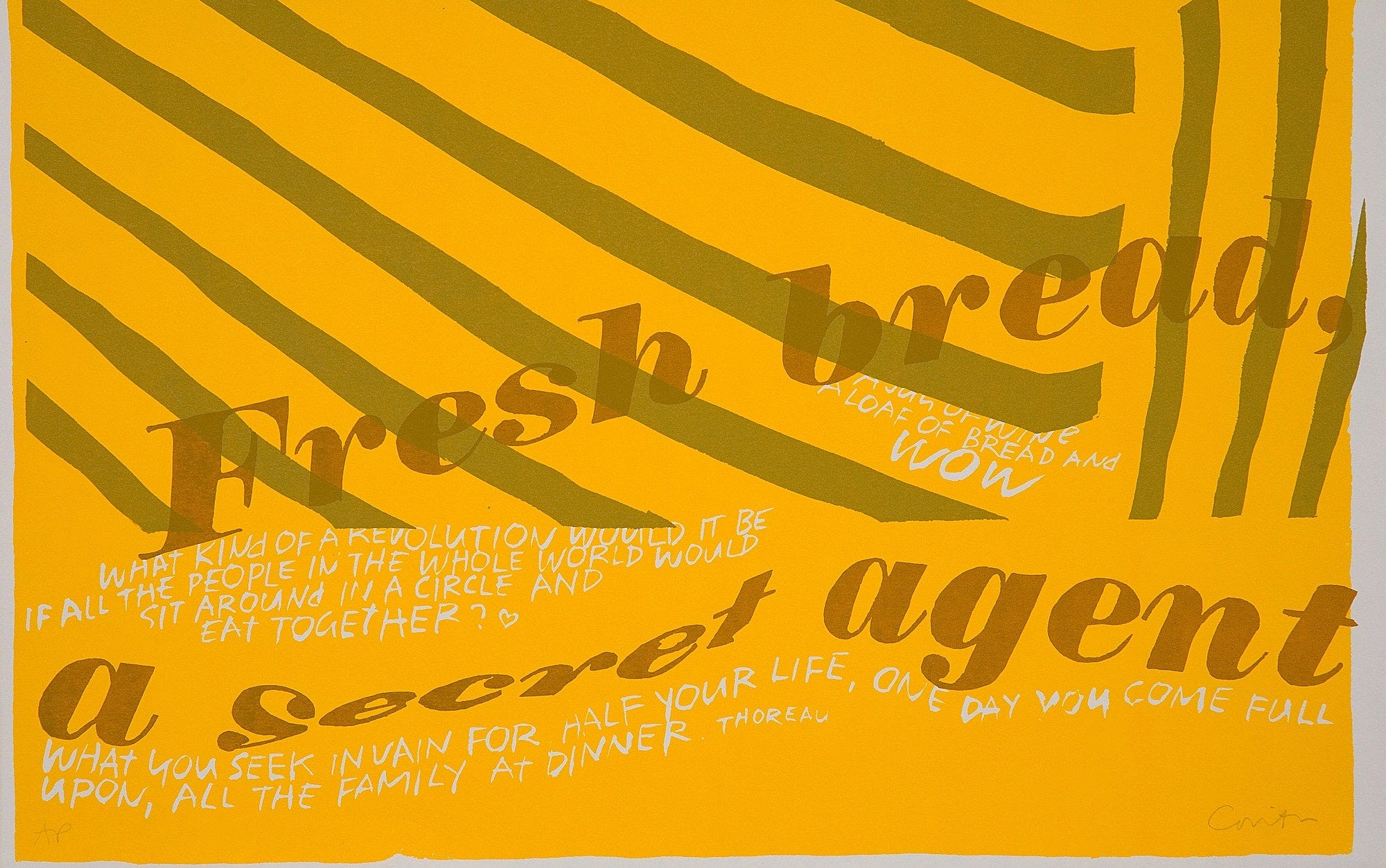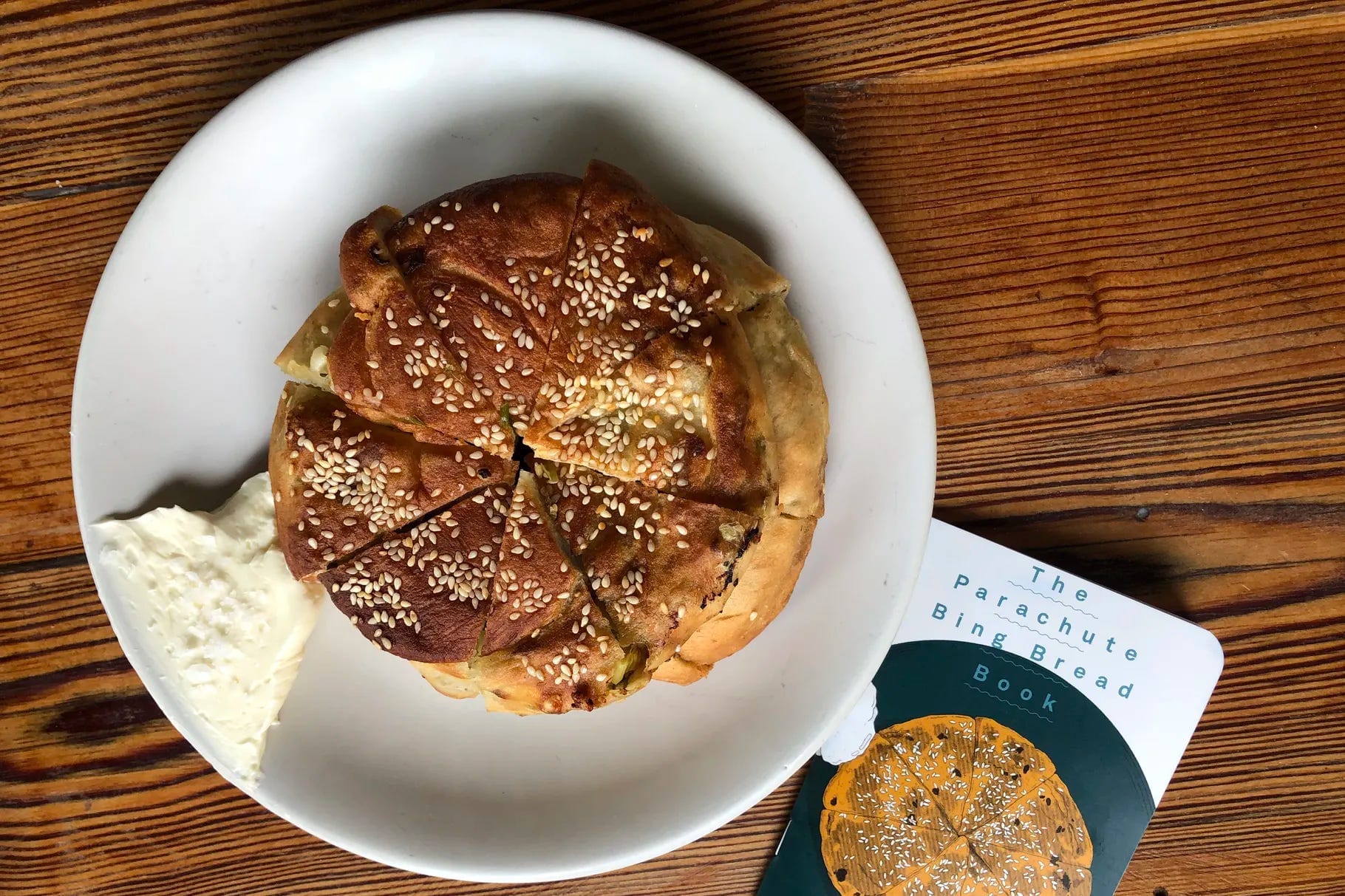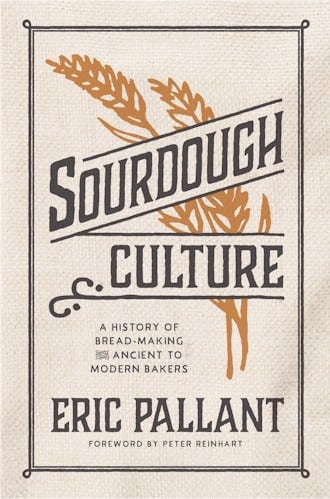Friday Bread Basket 7/1/22


Welcome to the Wordloaf Friday Bread Basket, a weekly roundup of links and items relating to bread, baking, and grain. This week’s email comes right after the Supreme Court has set fire to the country in the name of state’s rights or originalism or because it will bring forth the Second Coming, who knows, but boy is it a wonderful time to be alive. (Sorry, sorry, I’ll get back to the bread now.)
Bye bye bing

I was sorry to see that the Chicago restaurant Parachute is taking their famous bacon-, potato-, and scallion-filled bing bread off the menu, especially since I never got to try one there myself. Profit margins on the complicated-to-make stuffed Chinese bread were razor-thin, but the move is actually connected to a much larger push to make life better for their staff:
The owners feel the time is right to perform a major reset on staffing practices. They’re getting rid of the subminimum wage, the (legal) economic framework that supports tipping and cements foundational problems within hospitality like wage disparity between front and back of house and systemic bias against servers by customers. “We’ve inherited a broken template,” says Kim. “But we have to be careful about the new vision of how labor works. Until the consumer can understand the real cost of food and service, there’s this disconnect between what people are willing to pay for food and what we need to charge in order to have the living wages and benefits that create a sustainable environment for people.”
If Kim and Clark want to pay their workers fairly, it makes no financial sense to hold on to the bing bread. To understand why, it’s best to look at the bing bread two ways: first, based on pre-pandemic costs that yielded a 4.2 percent profit. Second, by comparing that to how much more the restaurant would have to charge in order to maintain that same slim margin, while also factoring in both the current inflation of food costs, and Parachute’s plan to raise server pay from the $9 subminimum wage to the $25 they typically make with tips.
I’m sorry to see the bing bread go, but I applaud this move. And thankfully, they still sell the Bing Bread Book, so we can make it at home, where profit margins are not an issue.

Free Online Talk on The Invisible 6,000 Year History of Sourdough with Eric Pallant on 7/20

Eric Pallant is going to be talking about the history of bread, as described in his book Sourdough Culture (a chapter of which I shared here last year) in a free online event sponsored by the Culinary Historians of Chicago, on 7/20 at 7PM CST. (You’ll need to email them at the address at the bottom of the page to get the zoom link.)

For queer kids who dream of buttercream

Yesterday was the last day of Pride Month 2022, but here at Wordloaf, we try to be allies for our queer friends year-round, which is why I hope you’ll read Camilla Wynne’s recent essay for King Arthur Baking, on “Why queer visibility in baking matters”, one that I know was not easy for her to put out into the world:
Coming out constantly can be exhausting. Most of the time, the fact that I don’t necessarily "look queer" to most people means dealing with peoples’ assumptions anew at every job I take. I’ve generally been fortunate in the places I’ve worked and the people I’ve worked with. But straight is the default, and each new crew of coworkers means having to come out over and over again. Sometimes I don’t have the time or energy to correct their assumptions, which can make it awkward if it turns out to be an ongoing gig. If I explain that I’m gay, which most people accept, at some point I’ll still have to engage in explaining that my spouse is non-binary to avoid them being misgendered. Repeatedly negotiating these incorrect assumptions is tiring and the effect is cumulative, especially when simultaneously scooping a thousand cookies or testing multiple recipes — you know, working. It’s sometimes led me to resent the extra burden of visibility that comes with being openly queer.
Google “gay baker” and the first page of hits is nothing but articles on the bakery that refused to make a cake for a gay wedding. That signals to me just how badly positive examples of queer bakers are needed. I want queer kids who dream of buttercream or bread baking to see all the ways that can look, not just how gay people have been discriminated against in the pastry world. As with any career path, it’s immensely valuable for LGBTQ+ kids (or even adults) to see out adults like them who are cookbook authors or chefs or bakers, making it that much more possible for them to imagine this future for themselves. Even though I still sometimes resent the labor of visibility, I keep it up in hopes of being that person for someone and in service of being my whole self in the world — and the kitchen.
While you are there, be sure to check out the beautiful basketweave cake recipe that Camilla created to accompany her story. 🌈🌈🌈

That’s it for this week’s bread basket. I hope you all have a peaceful long weekend, despite it being fireworks season. (Also: because of the J4 holiday, there won’t be a Monday open thread next week.)
—Andrew





Member discussion